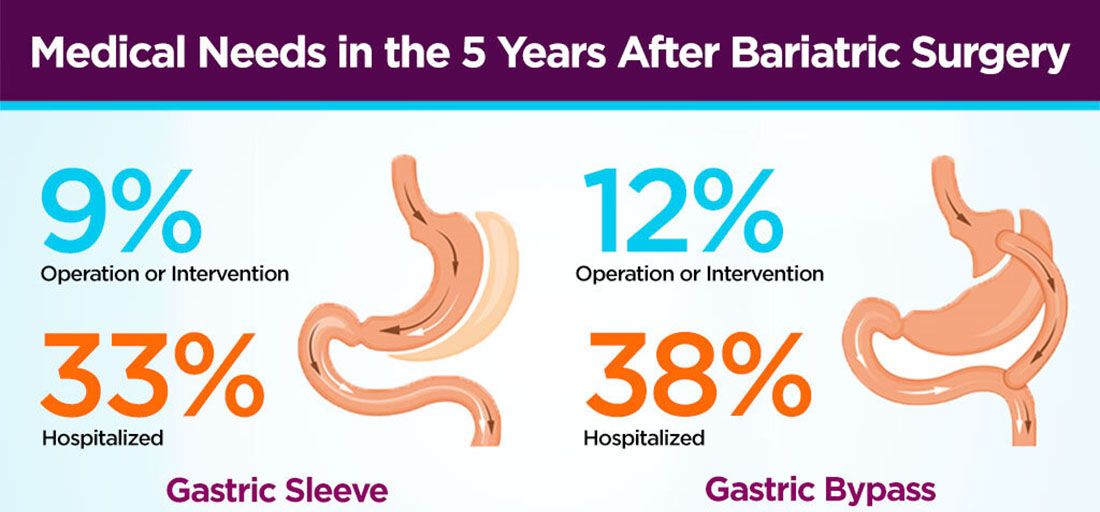A study involving 33,560 bariatric surgery patients found that Gastric Bypass patients were significantly more likely than Gastric Sleeve patients to end up back in the hospital in the years following surgery.
The paper, published by JAMA Surgery, describes one of the largest Bariatric Surgery studies ever done, and the first study of its size to focus on health problems years after the procedure.
About half of the patients included in this study underwent Roux-en-Y Gastric Bypass and the other half had Sleeve Gastrectomy (Gastric Sleeve).
With Gastric Sleeve Surgery, the doctor treats obesity by removing a portion of the stomach so that patients eat less and feel full faster. With Gastric Bypass, the surgeon creates a stomach-like pouch in the intestine and short-circuits the stomach entirely, achieving the same effect.
Five years after surgery, significantly more of the Gastric Bypass patients included in the study had undergone another abdominal operation or intervention, with an average of 12% of patients compared to 9% of those with a Gastric Sleeve. Endoscopy and hospitalization rates also were significantly higher for the Gastric Bypass group. There was no difference in mortality between the two groups after five years.
The study suspects the reason patients need more care in the years after Gastric Bypass is that it’s a more complex surgery than Sleeve Gastrectomy. Often with many weight loss procedures, future procedures for positive health changes, such as hernia repair, are needed and were included in the analysis.
Ultimately, the results of these studies could be used to help patients and health care providers make more informed decisions about the type of bariatric surgery to pursue.


